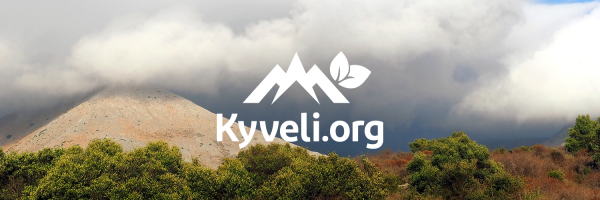We are a movement of free-thinking citizens with no specific party-political affiliation.
Our goal is the protection and rebirth of the Environment of Greece, and the fusion of all pro-Environment voices into a single, Panhellenic one.
We believe that the natural and cultural Εnvironment of Greece is directly endangered by the catastrophic industrialization that results from the unbridled and indiscriminate expansion of wind farms throughout the country.
The Environment is not something cut off, detached and external to us – on the contrary, it is our home, and is an inseparable part of our culture, society, history and folklore, as well as being the all-encompassing and all-nurturing manifestation of Mother Earth herself.
It is a sad fact that our mountainous and insular environment is being destroyed by the extensive and constantly-increasing placement of wind turbines, even in regions of remarkable natural beauty and also in areas with special environmental characteristics, including ones which are home to endemic species.Indeed, one of three of the current 11,209 wind turbines in Greece as at the time of writing (14 August 2021) are inside Natura 2000 protected zones. Please see here for an updated map: https://savenaturagreece.com/
In other words, the environment is being irreversibly destroyed under the pretext of its own protection. Here is a fundamental logical failure which verges on the surreal.
This catastrophe is multifaceted and includes both the immediate environmental impact of wind turbine operation, such as the extensive killing of birds by the rotating blades, as well as the floods caused by the flattening of the wind turbine installation sites and, consequently, the change in natural runoff.
At the same time, there is both visual and acoustic pollution from wind turbines, with a potentially negative effect on both tourism and on residents of nearby settlements. Additionally, there are secondary negative effects, for example the opening of forest / mountain roads for the installation of the wind turbines, thus creating new passages in virgin ecosystems for both illegal hunters and tree-poachers.
Finally, there is also the very fundamental question of the purported positive (‘green’) impact of the wind turbines, both in terms of their carbon footprint (yes, they do have one!), and their net energy contribution as seen from a life-cycle analysis perspective.
Therefore, and while we are not philosophically opposed to the idea of renewable energy, we are vigorously opposed to any exaggeration, especially when it negates renewables as a viable option of energy harnessing and harvesting.
What we are seeking and what we are proposing, given the extreme proliferation of wind farms in Greece and their incursion to the detriment of the Environment:
1. The cessation of the issuance of new licenses for wind farms in Greece as well as the cessation of the ongoing wind farm installation works until the current flawed legal framework is amended, and until each wind farm is re-evaluated environmentally by reputable (and not on the payroll of wind turbine companies, as is currently the case) environmental experts.
2. The immediate cessation of all new wind license applications in all land and island areas, given the multiple coverage of energy quota by the existing wind farms.
3. The obligation of the technical companies to submit a bank guarantee, even retrospectively in the cases of existing and active wind farms, so as to ensure the complete removal of wind farms at the end of their life life-cycle, with a parallel obligation to restore the environment, natural and cultural, in its pre-wind farm form and use.
4. The exclusive use of offshore wind farms, in areas where this is environmentally feasible and without having a negative impact on the local economy (e.g. fisheries).
5. The utilisation of the existing constructions (houses, industrial buildings, public buildings, etc.) as suitable points for the installation of small photovoltaics and wind turbines.
6. The gradual replacement of coal and oil with natural gas in thermal power plants, as a less polluting transitional solution.
